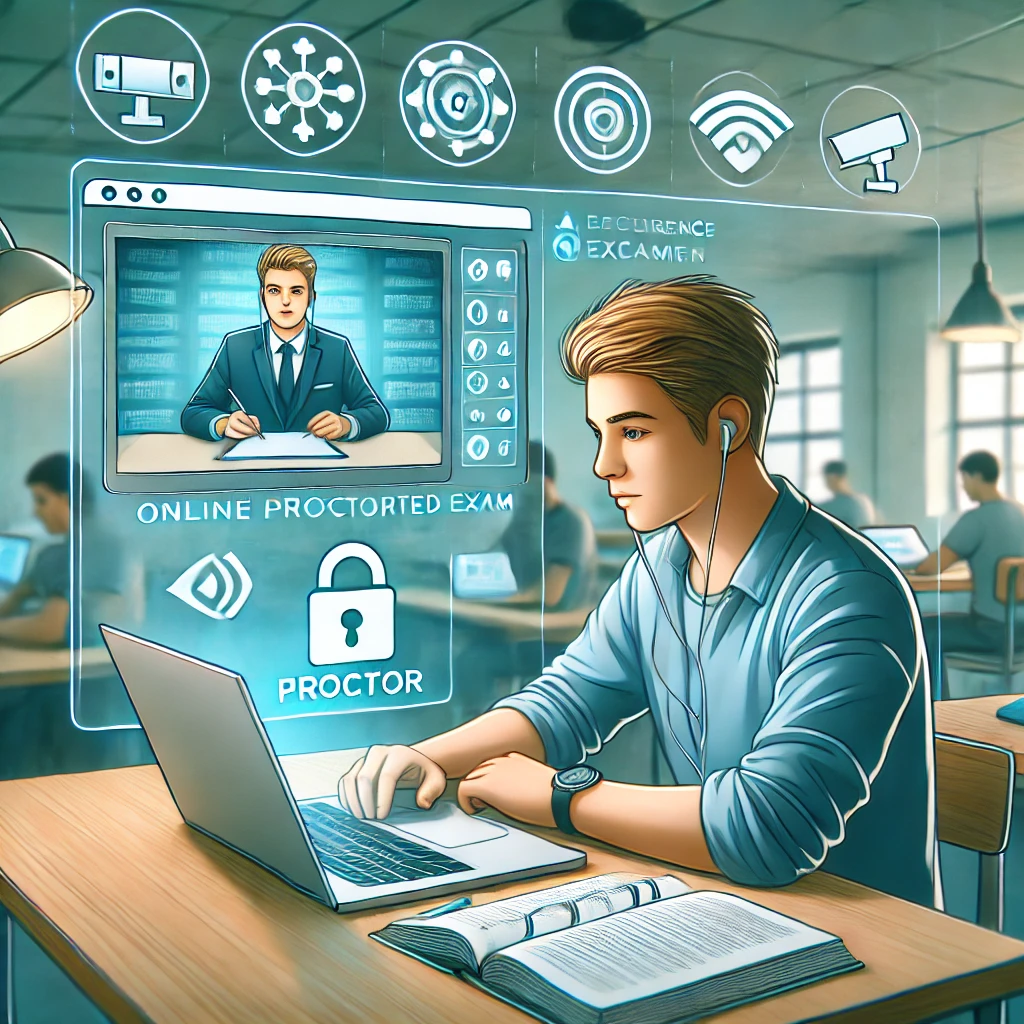Common Ways Students Cheat During Proctored Exams: What Educators Should Know
As online proctored exams become more popular, some students find ways to cheat. Here are some of the common methods and what educators can do to stop them:
- Using Unauthorized Materials: Students may try to use notes, textbooks, or other unauthorized materials during the exam. To prevent this, proctors should require students to show their workspace before starting the exam and ensure that the area is free of any materials not allowed.
- Employing Technology to Cheat: Some students might use their phones, tablets, or other electronic devices to look up answers or communicate with others during the exam. Institutions can prevent this by using exam software that detects and blocks the use of external devices.
- Collaborating with Others: Students might work with someone else, either in person or online, to get answers during the exam. Proctors should monitor the exam closely, watching for any signs of communication or collaboration, and use tools that can detect unusual activity or multiple people in the room.
- Switching Between Applications: Students may attempt to switch between the exam window and other applications or websites to find answers. To counter this, exam software should lock down the browser and restrict access to other applications during the test.
- Manipulating Proctoring Software: Some students might try to trick the proctoring software by using fake IDs, manipulating webcam feeds, or interfering with the software’s ability to monitor the exam. Institutions should use advanced proctoring tools that can detect these attempts and take appropriate action.
- Using Cheat Sheets: Even with proctoring, some students might try to use small, hidden cheat sheets during the exam. Proctors should perform thorough checks of the student’s workspace and monitor their behavior closely throughout the test.
How to Prevent Cheating in Proctored Exams
To maintain the integrity of online exams, educational institutions can take several key steps:
- Use reliable and secure proctoring software that monitors the student’s environment and detects suspicious activities.
- Require a thorough check of the student’s workspace and devices before the exam begins.
- Train proctors to recognize signs of cheating and respond appropriately.
- Implement strict rules about what students can have with them during the exam.
By understanding these methods and taking preventive measures, educators can ensure that online proctored exams are fair and secure.




